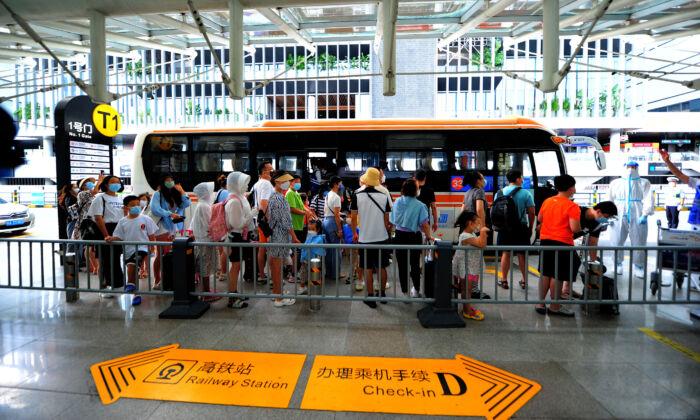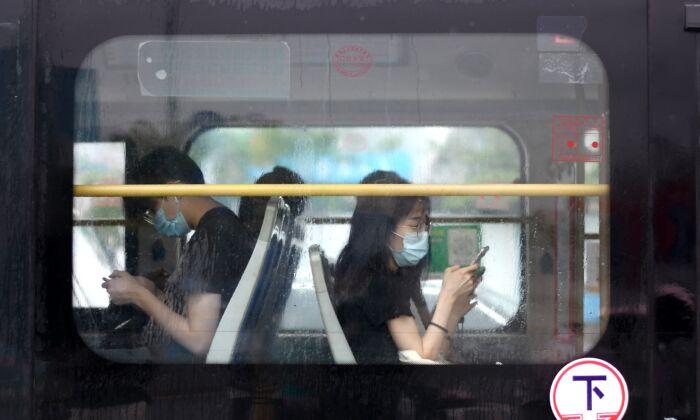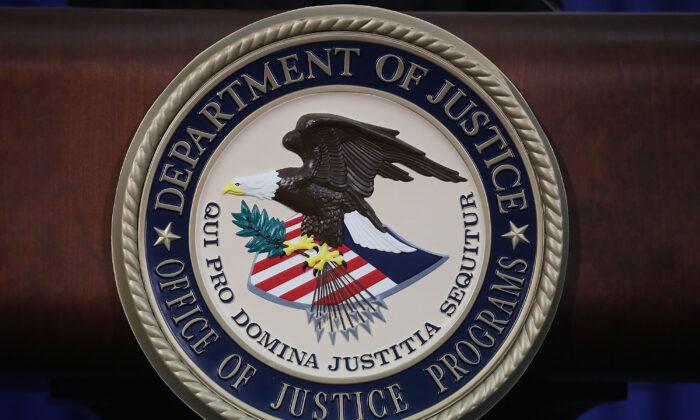The Chinese regime has introduced mandatory facial scans for people seeking to open a new phone account, in another measure as Beijing tightens control of cyberspace.
From Dec. 1, telecom operators are required to collect face scans of those applying for a new cellphone or landline number. The rule was announced by the Chinese Ministry of Industry and Information Technology (MIIT) in September.
The new requirement is an update of a previous MIIT rule that from January 2015 mandated that all applicants present a valid ID and personal information to register for a cellphone or a landline number.
Facial Scans
A customer service representative of China Unicom, a state-run telecoms company, told AFP on Dec. 1 that the new rule may require a customer “to record themselves turning their head and blinking.”A Beijing resident surnamed Chen, who visited a local China Mobile store on Sunday, told the Chinese-language edition of the Epoch Times on Dec. 2 that the process isn’t as simple as taking a portrait photo.
“The Chinese ID has a chip inside … They [China Mobile staff] put my ID on the ID reader, and directed me on how to pose accordingly,” Chen said. “It’s not easy. I tried three or four times and finally passed the test [facial scan].”
“At first, I had to blink my eyes in an exaggerated way one time [in front of the camera]. Then I opened my mouth once. In the end, I had to turn my head to the left, and then to the right slowly one time,” Chen said.
“They [staff] said the request is mandatory. The poses may not have to follow the same sequence each time but we [customers] need to follow the instructions.”
After Chen completed the facial scan and filled out a form with his personal data, the China Mobile staff gave him a new cellphone number and a SIM card.
Surveillance Concerns
Chinese residents and experts have expressed concerns over the new measure, saying it formed part of the regime’s plans to control its citizens by surveilling them on a mass scale.Wang said two of his new colleagues applied for new cellphones and were required to undergo the facial scan.
Jeffrey Ding, a researcher on Chinese artificial intelligence at Oxford University, told the BBC on Dec. 1 that while the stated aim for this measure was to boost cybersecurity and reduce fraud, it also allowed the regime to better monitor its population.
“It’s connected to a very centralized push to try to keep tabs on everyone, or that’s at least the ambition,” Ding said.
The report gave an example of a residential building in Changning District of Shanghai City. Local residents saw a worker installing an ad in the elevators in September. The worker said: “It’s an ad, but there’s a facial recognition camera installed in it,” according to the outlet.
The Chinese regime has used facial recognition systems to monitor the population for several years. The system has helped authorities track criminals and dissidents, and also facilitates the implementation of Beijing’s social credit system.
Data Security
Concerns have also been raised about the security of biometric data collected by facial recognition cameras.The report said the data included personal information and 50 to 100 headshots of each person.
The reporter then contacted one of the people whose personal data was leaked, a doctor surnamed Li from Guangxi Province.
“Li was shocked when he found out his photos and facial data was sold online. He said he had never authorized anybody to collect his personal data, nor allowed anybody to sell them,” the report said.





